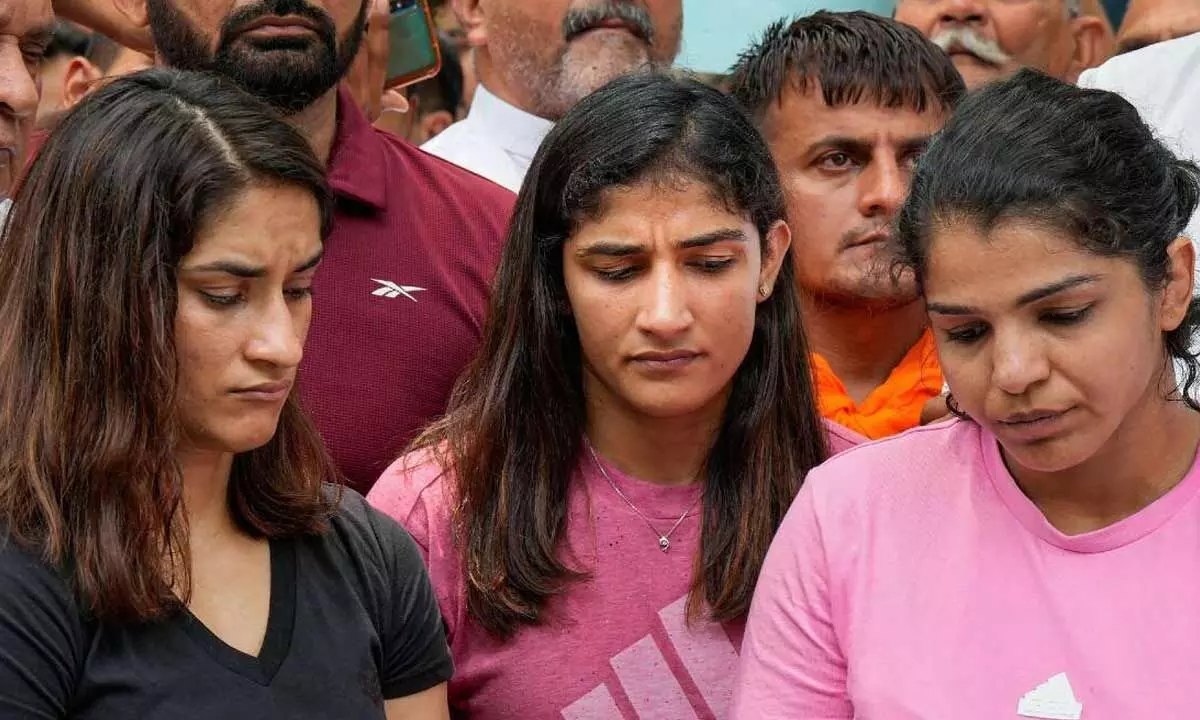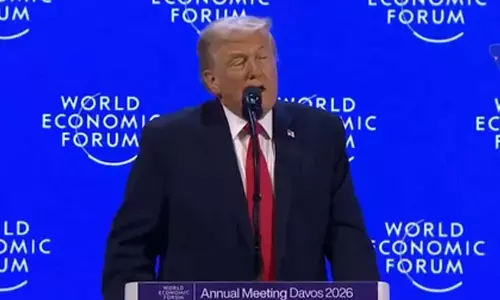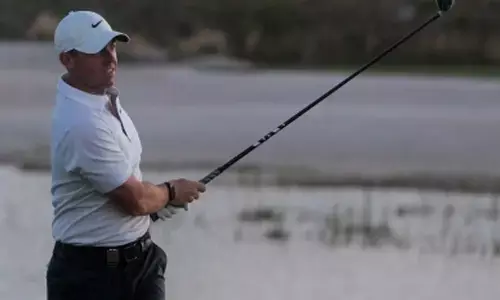A moral convulsion in nation’s psyche

A moral convulsion in nation’s psyche
The fact that many top-notch women wrestlers have come forward to seek justice in what they term as sexual harassment by the head of their federation over a period is not just national news
The fact that many top-notch women wrestlers have come forward to seek justice in what they term as sexual harassment by the head of their federation over a period is not just national news. It is also a national shame – i.e., if any sense of it still is left in the powers-that-be.
Seeking to know why these ‘victims’ had not disclosed the same earlier or as and when it happened is easier said. Indian women do hesitate to come out openly on such issues unless there is full support to them from several quarters. A sportsperson’s entire career is at stake in such situations. And the competition prevailing in pleasing the bosses certainly does not help the victims. Teamwork, sportsmanship, discipline and
respect are highly regarded values in sports. But revelations from people in this industry have opened our eyes to an existing culture of harassment that has clouded these ideals.
Whether it be athletes, staffers, or officials in sport organizations, the world of sports holds many victims of harassment, racism, sexism, discrimination, assault, and violence. What has caused this destructive trend to reign in this field? There is too much power in the hands of the ‘high value employees’ in the arena of sport. News about harassment in the sports industry often involves high-ranking officials, coaches, and ‘star’ athletes who have victimised other people in the field. Their economic value to the organization often becomes a reason for management to let things slide until it becomes part of the team’s culture.
In addition, we have political interference in the appointments to the sports bodies which induces a sense of supremacy in those holding key positions. Wrestling Federation is one such. Why politicians should handle such jobs is beyond any reason in this country. The perceived status of these ‘high value’ personalities can also cause victims to take a long time to report an incident or choose not to file a complaint at all in fear of retaliation.
In fact, the results of a survey conducted by the US Center of SafeSport indicated that 93% of the 4,000 athlete respondents who have experienced sexual harassment chose not to report it, while 18.1% said that they were retaliated against. Imagine what could be the position in India where discrimination is many times over than in the US. Research on harassment at the workplace indicates that one such factor is leadership behavior which plays a significant role in the occurrence of harassment in sports clubs and teams.
If leaders and coaches themselves are the perpetrators of bullying, micro-aggression, and harassing behaviour, disrespect and indecency will spread like wildfire in the workplace. Rewards and consequences can also influence the existence of a culture of disrespect. This is connected to the risk factor of workplaces with high value employees.
When top officials and “superstar” sports personalities are used to being immune to consequences
of bad behavior in the organisation, it creates a culture of fear and a workplace where the safety and well-being of employees are not prioritised. How could someone like P T Usha say what she said about the athletes otherwise? Does she not know the moral impact of such views on the victims?














